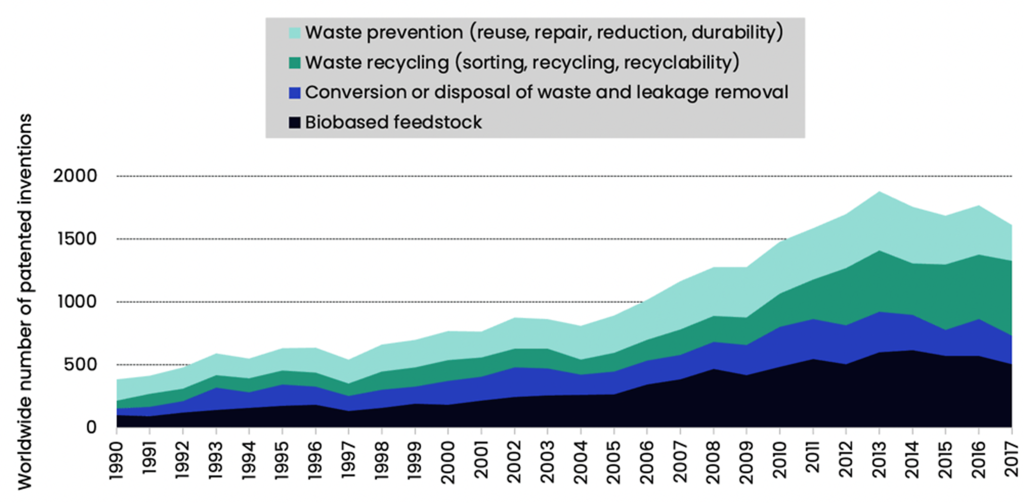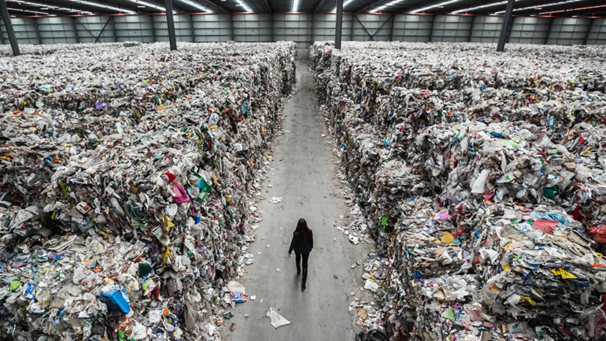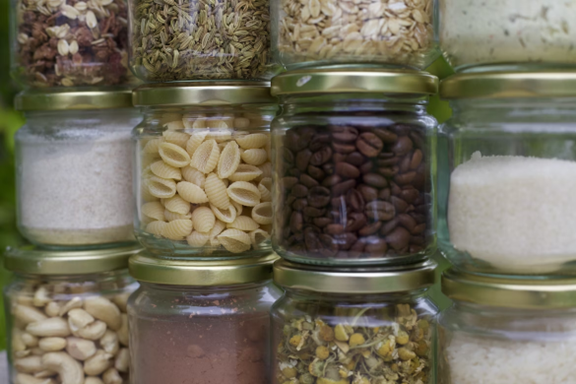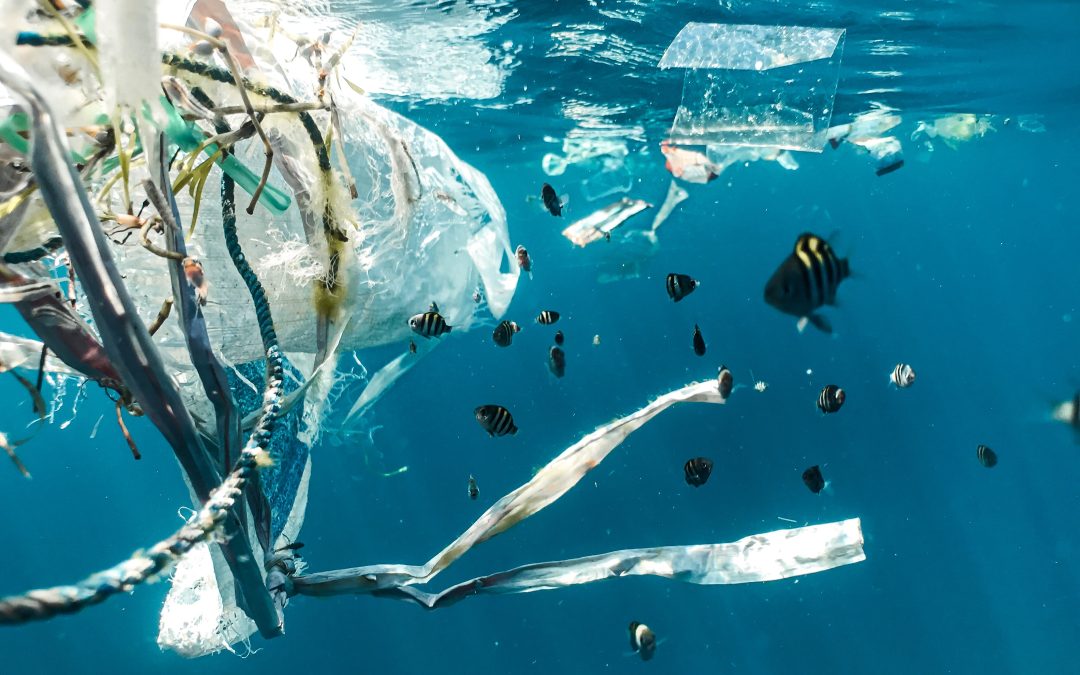This year, World Environment Day was about ‘beating plastic’, and with Plastic Free July approaching, let’s look at the plight of the war on plastic. Plastic overproduction and waste present a real threat to the health of our species and the planet at large, with up to 800,000 tons of plastic waste being produced per year in Australia alone – that’s the equivalent mass of over 350,000 SUVs!
However, this seemingly insurmountable problem is being tackled with gusto. Developments in recent years on the global scene, such as China’s ban on the import of plastics in 2021, the G7 Action Plan in 2015, as well as domestic actions like the induction of the NSW government’s Plastics Action Plan in 2021, reducing plastic waste is on the agenda and the plastic free movement is making headway.

Source: Calculation based on textual analysis of data from the OECD, STI Micro-data Lab: Intellectual Property Database, http://oe.cd/ipstats, June 2020
Exciting new innovations along the entire plastics value chain (i.e., the ‘lifecycle’ of plastic) are critical to reduce their environmental impacts. With increases in the global number of patents in the field more than tripling (and in some sectors quadrupling) between 1990 and 2017, things are looking up.
The majority of these have been focused on plastics ‘circularity’, as in lessening production, and the recycling of more plastic waste. Among the most novel of these is the use of artificial intelligence to recognise plastic among other garbage and even making plastic magnetic for easier extraction. There have also been common enzymes adapted to break down plastic into its fundamental building blocks, which can then be used to create virtually new, food-grade quality plastics.

Then, there’s bioplastics – making up about a third of total patents. This is where organic matter from different animals, plants, fungi and microorganisms – called biobased feedstock – is used to create bioplastic. The development of these types of plastics are increasing and are a greener alternative than traditional petrochemical feedstocks. However, these products are not without their drawbacks: the tricky part is the conditions necessary for their biodegradation are quite specific, and often not present in an ordinary landfill. Instead, they require a relatively energy expensive, high temperature composting process to biodegrade. So, while this technology is promising, we need the waste management systems to match them.

In the meantime, what’s the absolute best thing we can do in the war on plastic? Reduce our use! Here is a handy list to help in this practice:
- Carry a reusable water bottle, coffee cup, bag, cutlery set and straw with you when you’re on the go
- Take a reusable container with you to pick up a takeaway meal, the deli or butchers. Yes, COVID has made this tough, but practice when possible and encourage your favourite venues and restaurants to consider this by showing great hygiene practices.
- Returnr and Replated are two new reusable container programs to look out for
- You can find which cafes and restaurants are happy to accept reusable containers at Trashless Takeaway
- Choose low or no-packaging items above those wrapped in plastic e.g Buy unpackaged fruit and vegetables, buy toilet paper wrapped in paper
- Shop at bulk stores and farmers’ markets, with your own produce bags
- Cook your own breads, biscuits, stock and so on. It’s great fun, and avoids packaging
- Plan a plastic free picnic with homemade dips, salad, treats and tea in a thermos
- Go naked! Don’t line your garbage bin, just wash it after each use
- Use reusable cloth nappies – there are many easy-to-use options
- Adopt a plastic free period by using a menstrual cup or try washable period underwear.
- Visit the IWC website about Plastic Free July for more: https://www.innerwest.nsw.gov.au/live/waste-and-recycling/reuse-options/plastic-free-july/plastic-free-july

